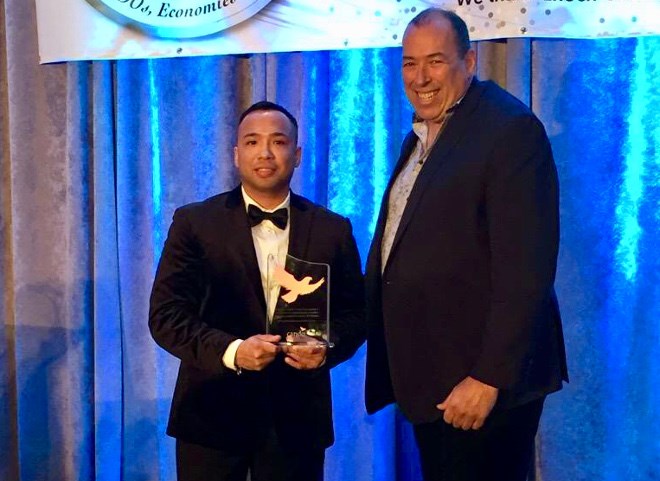As the howling wolf logo suggests, there is an awakening among a new generation of Indigenous entrepreneurs in Northern Ontario and a fledgling business advocacy group.
With major transmission line projects in the queue, and a plethora of natural resource developments rolling out, First Nation businesspeople and communities are finally raising their hands to be included in the procurement process on their territorial lands.
“There wasn’t an advocacy voice for the North,” said Jason Rasevych of Thunder Bay, president of the Anishnawbe Business Professional Association (ABPA).
“We were running into some issues and challenges with procurement and inclusion.
For the federally incorporated not-for-profit, the official launch is anticipated for March 1 in Thunder Bay when their website goes live and membership registration will be taken.
The group will formally introduce themselves to the natural resource community with a presentation at the Northern Ontario Mining Showcase during the Prospectors and Developers Association of Canada’s annual mining conference on March 5.
“Our vision is Anishnawbe business success, and our mission statement is to enhance the opportunities for Anishnawbe business in Northern Ontario through advocacy, education, leadership and strategic relationships,” said Rasevych.
Joining him on the board of directors are Rachael Paquette (vice-president), Ron Maranon (vice-president), Jason Thompson (treasurer-secretary) and Brian Davey (director).
The word ‘Anishnawbe’ was incorporated into their association’s name to represent an inclusive and potentially widespread membership from the Manitoba border to Sudbury to help fill out their 10-member board.
Rasevych is optimistic they can reel in more than 200 members over the next two years.
He said various tribal councils, Indigenous political groups and agencies just aren’t structured or equipped to raise points of advocacy on behalf of the Anishnawbe business community, which is a role the ABPA is eager to take on.
They’ll also work with other affiliated groups, such as chambers of commerce, on regional policy recommendations.
“We’re really looking to facilitate and provide that ground to have those discussions, which hasn’t been happening to the level that it should.”
This movement, Rasevych maintains, is long overdue.
First Nation communities have always had their business stars; however, many entrepreneurs and small business owners are now dreaming big, based on the opportunities they see in natural resources development, tourism, construction, retail, wholesale and commerce.
“Because of the challenges with the First Nations system and the Indian Act, we’re seeing a lot of individuals saying the answer is entrepreneurship, and economic well-being is a part of total well-being.”
The development of a small and medium business-based sector is a missing element in many communities, he added.
“We’re not going to resolve all the systemic issues overnight, but as far as the economic piece, that will help push prosperity forward. We can play a role.”
Membership will be categorized as Anishnawbe (51 per cent First Nation ownership) and non-Anishnawbe (or associate) members, which will have access to a suite of programs and services available to them.
For First Nation businesses, the group will assist on the procurement side in getting involved with the bidding process on large projects, networking opportunities, and generally help home-grown businesses expand.
For non-First Nation businesses, the ABPA can help make contacts on sourcing services, contractors and trainees in making inroads into certain markets, and help them draft more inclusive company procurement policies.
The association intends to run an active event calendar with conferences, workshops, and specialized lunch-and-learns held on a quarterly basis that rotate to various communities across the North.
“It is a long time coming and it is much needed as far being a voice for the North,” Rasevych said.
“I think it’s a game-changer and I think it’s going to grow to where you’ll see a lot of market share in the North go to Anishnawbe businesses.
“You’ll see Anishnawbe businesses branded in a way where they’re more respected in the business community and within government procurements processes, and it’ll come to a point where it’s well known in Northern Ontario.”




